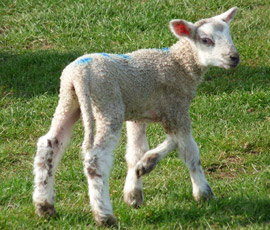Merial applies for rival Schmallenberg vaccine

A second vaccine against the deadly Schmallenberg virus could be commercially available this autumn.
Merial Animal Health has submitted an application for regulatory approval and licensing of a vaccine to protect sheep and cattle from the virus for commercial use in the UK.
The Veterinary Medicines Directorate (VMD), the government’s body that licenses and registers vaccines in the UK, is reviewing the application.
Merial scientists developed the vaccine at the firm’s laboratory in Lyon, France.
However, no details about the cost of the vaccine or how it performed in company trials have been released.
A spokesman for Merial said: “We have developed a vaccine against the Schmallenberg virus which is being considered by the VMD.
“The application was submitted to the VMD in April. We hope to have the vaccine available for use by autumn pre-tupping.”
MSD Animal Health was awarded a licence by the VMD to market the first Schmallenberg vaccine, which is available for use this summer.
If it enters the market place, Merial’s vaccine will rival MSD’s, although it is understood that Merial is targeting its vaccine to appeal to mainstream producers considering vaccinating their flocks or herds.
NFU livestock board chairman Charles Sercombe, a sheep farmer in Leicestershire, welcomed the development of a second vaccine against the virus, but hoped its introduction would lower the price for farmers.
“Anecdotally, most early-lambing pedigree flocks of sheep have needed to vaccinate, but a lot of the commercial guys haven’t,” he pointed out.
“They got away with it last year – there is immunity, so there is no point, especially at the price.”
Phil Stocker, chief executive of the National Sheep Association (NSA), agreed that a second vaccine would provide “healthy competition” in the marketplace.
He encouraged sheep farmers to think about their systems, talk to their vets and carry out a risk assessment to decide whether vaccinating flocks against the Schmallenberg virus was cost-effective.
“I know that quite a lot of farmers are using the MSD vaccine already,” said Mr Stocker.
“Many early-lambing pedigree flocks are at high risk when there is a lot of midge activity, but this is going to reduce the further north or west you go due to colder weather.
“Producers should also think about where the virus was seen last year – are they located near the edge of affected regions?”
Blood samples of animals could also be tested for antibodies to identify stock that has already been exposed to the disease, he added.
According to the AHVLA, about 2,000 cases of Schmallenberg virus have been confirmed on farms in the UK. The disease has been detected in every county in England and Wales and is spreading across Scotland.
The Schmallenberg virus is transmitted to livestock by culicoides biting midges. Exposure to the virus during pregnancy can cause fatal birth defects and miscarriages in unborn sheep and cattle.
It is hoped that introduction of vaccines to tackle the virus will help safeguard flocks for lambing and herds for calving next year.
